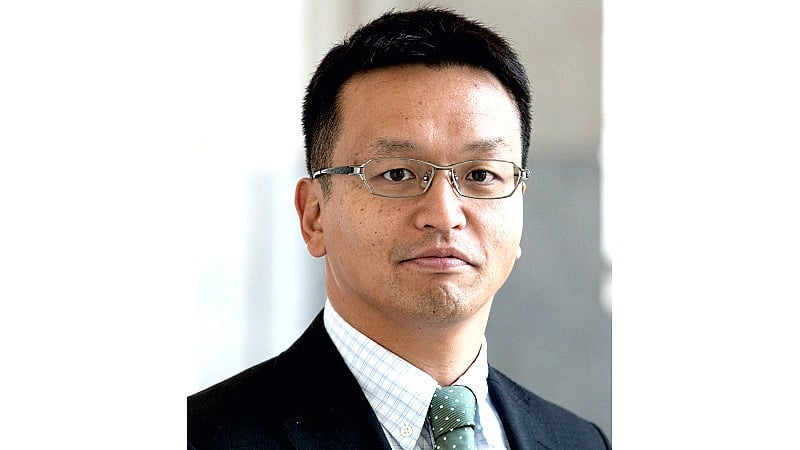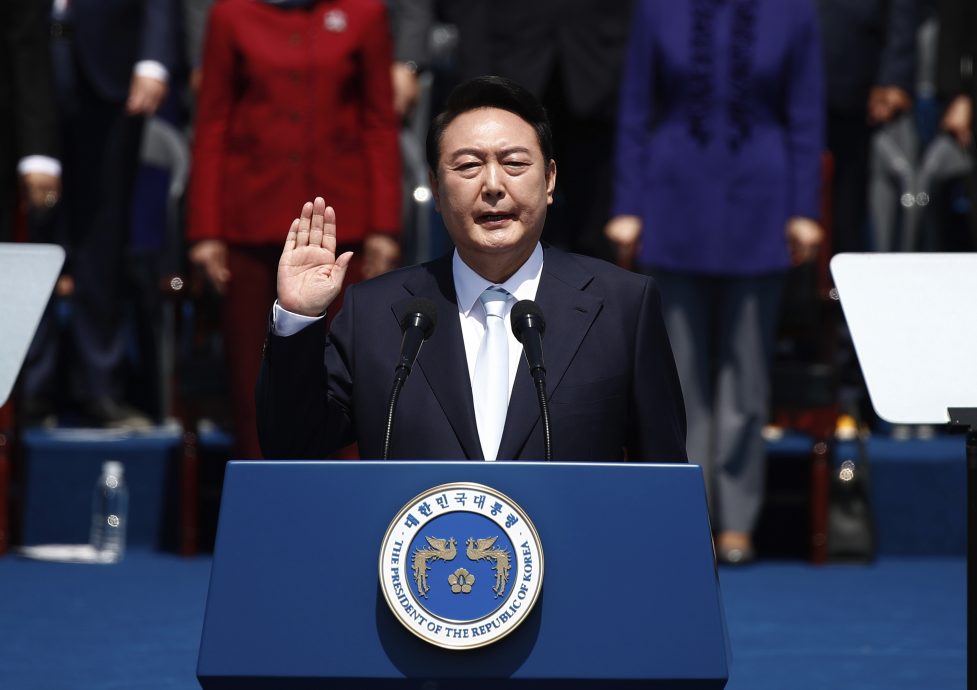 Although the ruling People Power Party (PPP) suffered a crushing defeat in South Korea’s April 10 parliamentary elections, it still managed to win 108 seats out of a total of 300. Most importantly, the opposition parties were denied the two-thirds majority that would have allowed them to impeach President Yoon Suk Yeol. Although Prime Minister Han Duck-soo and other top government officials have announced their resignations one by one, the Yoon Suk Yeol administration has to deal with a “twisted National Assembly,” so it should be assumed that there will be no change in the majority. To begin with, foreign policy and policy toward North Korea have not had much influence on the voting behavior of South Koreans, and this election was no exception.
Although the ruling People Power Party (PPP) suffered a crushing defeat in South Korea’s April 10 parliamentary elections, it still managed to win 108 seats out of a total of 300. Most importantly, the opposition parties were denied the two-thirds majority that would have allowed them to impeach President Yoon Suk Yeol. Although Prime Minister Han Duck-soo and other top government officials have announced their resignations one by one, the Yoon Suk Yeol administration has to deal with a “twisted National Assembly,” so it should be assumed that there will be no change in the majority. To begin with, foreign policy and policy toward North Korea have not had much influence on the voting behavior of South Koreans, and this election was no exception.
As a former prosecutor, Yoon Suk Yeol seems to have a strong tendency to go his own way. A prime example of this is his consistent emphasis on Japan-Korea relations, despite public backlash over the issue of former civilian workers from the Korean Peninsula. With the loss of unifying force resulting from the crushing general election defeat, it may be difficult to expect further progress in security cooperation with Japan. However, this will set it apart from previous South Korean governments, such as the Roh Moo-hyun administration, which strengthened its anti-Japanese stance as its approval ratings declined.
Prime Minister Fumio Kishida wants to hold the first Japan-North Korea summit in 20 years with Chairman of the State Affairs Commission Kim Jong Un, and it is hard to imagine that Yoon Suk Yeol, who attaches great importance to Japan-South Korea relations, would oppose this idea. There is no doubt that efforts to strengthen cooperation among Japan, the United States and South Korea will continue as long as Biden is president of the United States.
Coincidentally, at the Japan-U.S. summit in Washington on the same day, Kishida asked Biden for his understanding of efforts to hold a Japan-North Korea summit and received his approval. However, this is unlikely to have any particular impact on future Japan-North Korea negotiations. This is because President Biden has expressed support for Japan’s policy toward North Korea, and the Kishida administration has no intention of making excessive concessions to North Korea.
Rather, what Prime Minister Kishida should do to make the Japan-North Korea summit a reality is to approach North Korea, be willing to take risks, and make efforts to convince public opinion at home. Getting the cooperation of the United States is just one way to improve the environment. North Korea has repeatedly issued statements rejecting dialogue with Japan, which is reluctant to make major concessions, and it remains difficult for Japan-North Korea negotiations to make progress even with the support of the United States and South Korea.
Japan is not the only country with which North Korea refuses to talk. Kim Jong Un has called South Korea the “number one enemy” and has also cut off hotlines to Seoul. Three summits with former President Moon Jae-in have yielded no concrete benefits for North Korea. In addition, North Korea strongly opposes Yoon Suk Yeol’s hardline policy toward North Korea. Yoon Suk Yeol continues to maintain a hardline stance and completely denies that Moon Jae-in’s dialogue with North Korea was a waste. When there is a change of government in a country with a presidential system, the policies of the previous government are often completely repudiated.
South Korea’s Unification Minister Kim Yung Ho said in an interview with Japan’s Sankei Shimbun that he would make the release of South Korean abductees and others held by North Korea a top priority. Up to now, attention to the abduction issue has focused only on the abduction of Japanese citizens. This is because the South Korean government has not taken the issue of abductions of its own citizens seriously. Both North and South have accused each other of “abduction” not only during the Korean War in the early 1950s, but also during the Cold War that followed. South Korea is now a dignified democracy, but in the past the Korean Central Intelligence Agency (KCIA) (later the National Intelligence Service [NIS]) had conducted various operations, including the abduction of North Koreans, so they may have felt guilty about it. During the Cold War, the former foreign minister of South Korea defected to North Korea.
The Ministry of Unification, which serves as the liaison to North Korea, has focused on economic and people-to-people exchanges between the two Koreas for many years. Conservative governments have been no exception. The Lee Myung-bak and Park Geun-hye administrations have a history of funneling large amounts of foreign currency to North Korea through the Ministry of Unification. However, if the head of the Unification Ministry were to take the initiative to strongly confront North Korea’s human rights issues and make it clear that the shelved issue of abducted South Koreans would be made a top priority, a backlash from North Korea would be inevitable. Resuming the inter-Korean dialogue is hopeless.
In February, Kim Jong Un vehemently accused South Korea of trying to overthrow the North Korean regime and dreaming of a reunification of the two Koreas. Conversely, the logic is understandable. From the point of view of the Yoon Suk Yeol government, there is no doubt that North Korea will resolutely prevent the overthrow of the South Korean government and North Korean-led reunification.
Nowadays, North and South Korea are moving in parallel. If North Korea launches four missiles at South Korea, South Korea will launch four missiles at North Korea. Both countries are also focusing on launching reconnaissance satellites. North Korea has often used the phrases “word for word” and “action for action.” It is intolerable for the neighboring countries to be dragged into this situation as both the North and the South curse each other and build up their militaries.

(Atsuhito Isozaki is Professor at Keio University, Japan.)
ADVERTISEMENT
ADVERTISEMENT


































